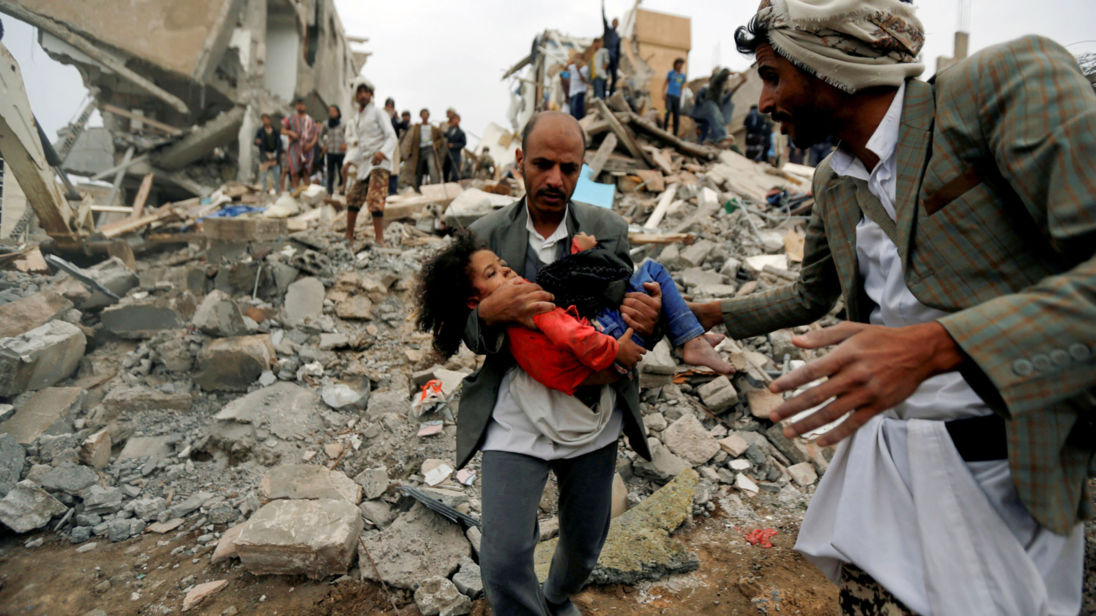Yemen’s crisis escalates
June 13, 2018 | Expert Insights

A Saudi-led coalition, which backs Yemen's exiled government has launched an assault on the port of Hodeidah in the country. The region is currently controlled by the Houthi rebels. According to aid agencies, this will likely hinder the region from having access to humanitarian aid and could endanger the lives of 200,000 people currently living in the city.
Background
The modern Republic of Yemen is a relatively new state. Prior to becoming the modern state of Yemen, several dynasties emerged from the ninth to 16th centuries to rule the region. The most powerful one was the Rasulid dynasty. In early 20th century, the country was divided between the Ottoman and British empires in the early twentieth century. South Yemen became a communist country and North Yemen remained traditional to its roots. In 1990, the two regions merged.
Yemen, one of the world’s poorest countries in the world, has been devastated by the war between forces loyal to the internationally recognized government of President Abdrabbuh Mansour Hadi and those allied to the Houthi rebel movement. The Yemen Civil war began in 2011 with the Arab Spring protests that led to the fall of the then President Ali Abdallah Saleh on charges of corruption and economic grievances. Hadi, his deputy minister at that time, took over the region. However, the increasing political instability in Yemen paved the way for the Houthi, representing the Shiite minority to take over the territory.
A military intervention was launched by Saudi Arabia in 2015, to influence the Civil War in Yemen. A two-year Saudi-led campaign has damaged infrastructure and caused shortage of medicine in one of the poorest Arab countries. Reports have also emerged that there are players within Yemen who actively sponsor terrorism by funding activities conducted by ISIS.
The Saudi-led coalition has been carrying out air strikes against the Houthi rebels for more than 2 years now. Since then, the country has been plunged into a civil war in which the exiled government backed by Saudi Arabia is trying to defeat the Houthi group aligned with Iran.
Analysis
The war has caused a humanitarian crisis, including a famine which has threatened over 17 million people, as well as an outbreak of cholera which has infected hundreds of thousands.
According to experts, the latest development could further push the nation into further chaos. The coalition that is being backed by Saudi Arabia began the assault June 13th, 2018. The region is a crucial battle in the three-year-old war that could push the Arab world's poorest country into further chaos.
The government of Yemen, which is still recognised by the UN and is opposed to the Houthi take-over of the country said: “The liberation of Hodeidah port is a turning point in our struggle to recapture Yemen from the militias that hijacked it to serve foreign agendas. The liberation of the port is the start of the fall of the Houthi militia and will secure marine shipping in Bab al-Mandab strait and cut off the hands of Iran, which has long drowned Yemen in weapons that shed precious Yemeni blood.”
According to Anwar Garhgash, the UAE foreign minister, the Houthi forces had been given three days to vacate the port. “The Houthis cannot hold Hodeidah hostage to finance their war and divert the flow of humanitarian aid. Their assault on the Yemeni people has continued for too long. Their folly of trying to take over Yemen through the barrel of a gun is coming to an end”.
The attack puts humanitarian supply lines at risk. Before the war, over 70 per cent of Yemen's food and fuel imports came through Hodeida, accounting for more than 40 per cent of the nation's customs income. As much as 80% of the aid, including medicines, fuel, and food that reach the famine-struck country, go through the port. However, according to officials, the Houthi rebels use the port to also smuggle goods and drugs.
Assessment
Our assessment is that the attack on the port city of Hodeidah could push the Arab world’s poorest country into further chaos. We believe that the battle of Hodeidah may mark the beginning of the first major street-to-street urban fight for the Saudi led coalition. There is a shortage of medicines, food, and basic necessities for the millions living in the country. If emergency medical, food and water supplies cannot reach the region, then civilians will not be able to survive.








Comments